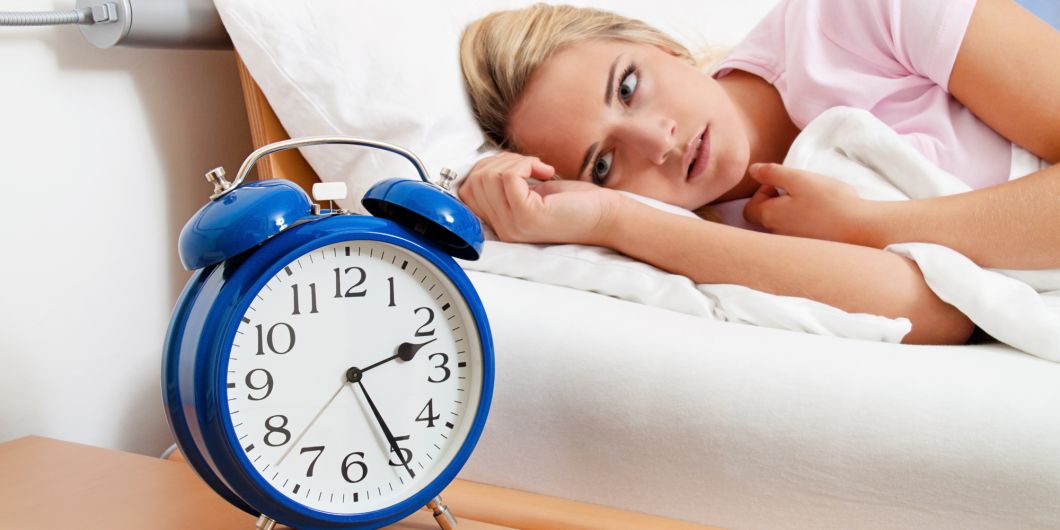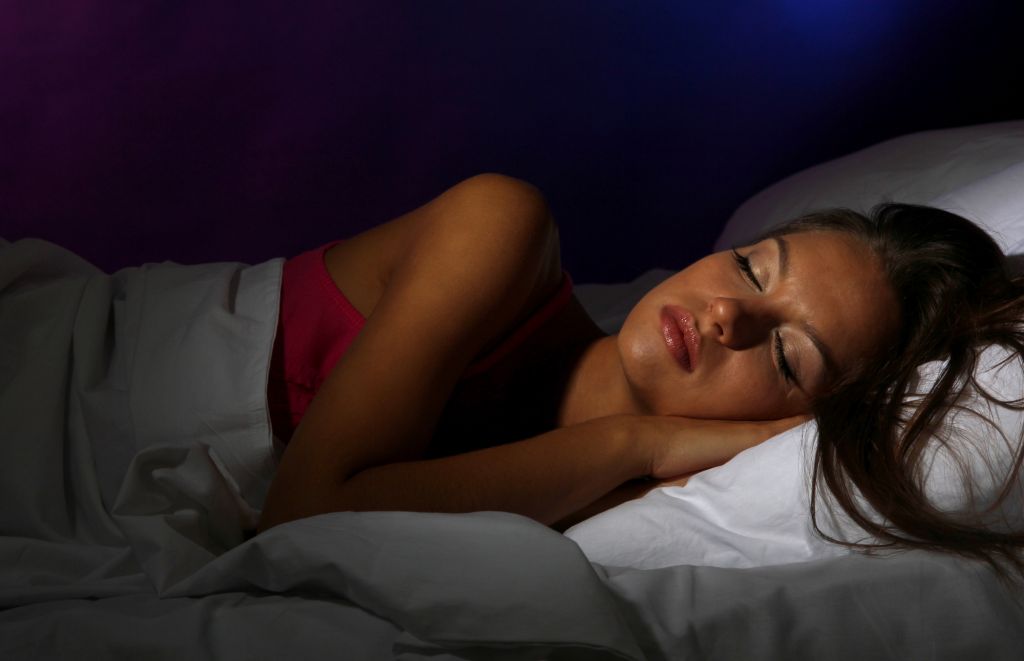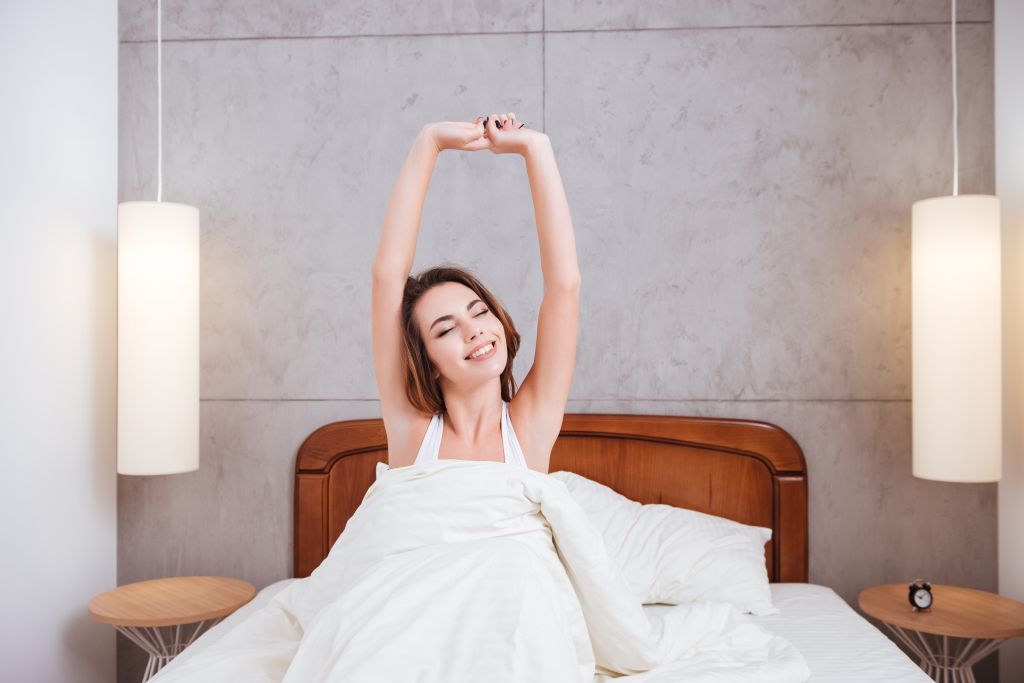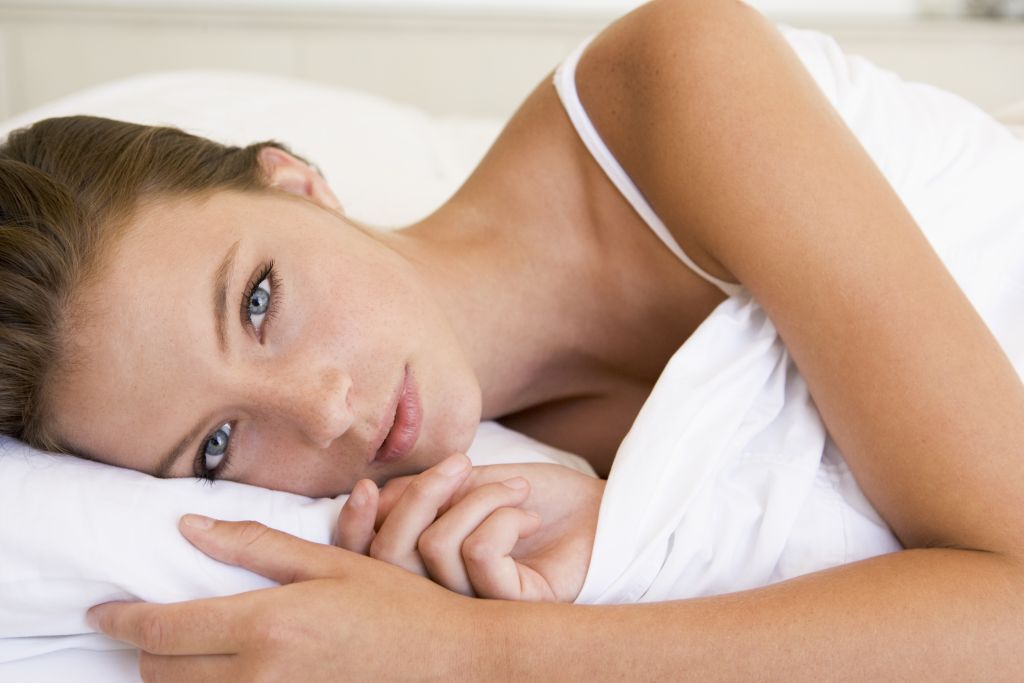- in Health , Sleep by tony
- |
- 5 comments
Better Sleep

If you can't sleep, then get up and do something instead of lying there worrying. It's the worry that gets you, not the lack of sleep. ~ Dale Carnegie ~
More...
Getting Better Sleep- Reduce Your Stress and Live Better
Are you one of the 7 out of ten adults in the United States that experience stress or some type of anxiety daily and it interferes with your sleeping? (Source: 2007 Stress and anxiety Disorders Survey commissioned by the Anxiety Disorders Association of America)
- Most adults with a stress-induced sleep problem will experience trouble sleeping at least once a week, if not several times a week.
- Three-fourths of adults affected by stress say sleep problems increase their stress.
- 52 percent of men and 42 percent of women say that trouble sleeping due to stress affects their ability to stay focused during the day.
- Adults getting seven hours of sleep at least four nights a week: 61%
- The average adult sleeps 6.6 hours a night.
- Women are more likely to experience sleep problems due to stress, as opposed to men. Source: (ADAA).
- Adults with high levels of stress are more likely to admit they aren’t getting enough sleep because their minds are racing: 49 percent vs.10 percent with low stress. (Source: News Press Releases)
It’s no wonder you are having trouble sleeping.
You are faced with stress on a day to day basis. It can be emotional, environmental, physical or mental.
Stress takes an intense toll on your overall health and well-being.
It affects you not only physically, but mentally, as well. It’s one of the leading causes of sleep deprivation.
And the less sleep you get the more stress you often feel. It’s a nasty cycle.

This Sleep-Stress cycle is real.
Research indicates links between sleep and stress lead to the potential for a vicious cycle of exhaustion and more stress.
Stress impacts how you sleep. And vice versa, sleep affects the amount of stress you have. You’ve probably had the experience of lying in bed, late at night, hour after hour staring at the ceiling while your daily stress loop through your mind.
A survey done by the American Psychological Association shows that stress is the cause for adults getting only 6.7 hours of sleep, many reporting that their stress increases as the length and quality of their sleep decreases. (Survey)
The survey continued, saying thirty-seven percent of adults feel tired because of stress. Not only that, adults not getting enough sleep, roughly 53 percent, report feeling lazy or sluggish, 38 percent felt irritable, 29 percent had trouble concentrating and 25 percent had no motivation.
Sleep is our natural state of rest for both the body and the mind.
A third of our lives are spent sleeping, yet we often take it for granted.
Difficulty sleeping has become the norm for millions of people.
Are there ways you can combat this to get better sleep?
And why is a good night’s sleep necessary?
In this guide, you’ll learn the reasons you need a good night’s sleep and how stress impacts sleep.

Why You Need a Good Night’s Sleep
As a teenager, you probably thought you could stay up all night and still go to school. How’d that work for you?
A good night’s sleep is essential no matter what your age. To be focused mentally, calm emotionally and physically healthy your body needs to recharge every night. Yet most of us don’t get the recommended seven to eight hours needed.
Your body shifts its energy focus during sleep. During our waking hours our body focuses on processing information, digestion and moving. As we sleep, our body focuses on the internal needs such a rejuvenation, repair and self-healing.
Benefits of a good night’s sleep include:
- Increased longevity. Getting enough sleep is directly related to length of life. People who sleep fewer than 6 hours a night have a greater risk of death. Insomnia and sleep deprivation are also linked to vehicle crashes.
- Steer clear of depression. Sleeping the recommended 7 to 8 hours means your overall well-being is better, with less anxiety and more emotional stability.
- Muscle relaxation. A good night’s sleep allows your muscles to fully relax and take a break, allowing your body to recharge and replenish. Your respiratory muscles relax as well, resulting in slower breaths. During REM sleep, your muscles become so relaxed they might seem to be temporarily paralyzed. This protects you from acting out your dreams.
- Weight management. Not getting enough sleep can lead to weight gain.
- The amount and quality of sleep affects the hormone levels which stimulate your appetite and feeling of fullness.
- Well-being. Getting adequate sleep is essential for your overall sense of well-being. Sleep allows your body to process and recover from the day and to feel rejuvenated to handle the next day.
- Curb inflammation. People who get less than seven hours of sleep have higher blood levels of the inflammatory proteins that are linked to heart disease, stroke, diabetes, arthritis and even premature aging.
- Lower stress levels. Stress and sleep are connected, and both can affect your cardiovascular health. Adequate sleep reduces levels of stress, which in turn gives you better control over blood pressure and cholesterol levels.
A good night’s sleep is necessary for a healthy lifestyle. It affects how you feel, how you interact in your relationships and your productivity. While you sleep your brain begins working to re energize the body.

How Stress Impacts Sleep
If you’ve ever tossed and turned after a rough day at work, you know that stress can make it hard to turn off the mind and get a good night's sleep.
As we’ve already seen, the connection between sleep and stress is a two-way street.
Lack of sleep can be a big source of stress the same as stress can lead to lack of sleep.
No matter what your age is or your occupation, a lack of sleep can throw your system off balance. Stress impacts your sleep in many ways.
Not enough sleep creates a vicious sleep-stress cycle. When you are stressed, your mind is racing with worry. It’s hard to turn it off. Your body is tired, but your mind isn’t, so you lie there staring at the ceiling or tossing and turning, lucky to get 4 or 5 hours of sleep.
- Quality of sleep. Even if you do get to sleep when you are stressed, your sleep may be interrupted. In fact, approximately 42 percent of adults get poor quality sleep when stressed according to the Stress in America survey done by the American Psychological Association.
- Increases risk of insomnia. If you are chronically stressed, it may be robbing you of sleep entirely.
- Overactive brain. Stress keeps your brain hyperactive. Normally when you fall asleep, your body shifts from the active sympathetic nervous system to a calmer system. Stress keeps your body from making this shift.
- Creates a vicious continuous loop. As we’ve already discovered, stress and sleep are related. When you're stressed you can't sleep and then your lack of sleep contributes to more stress, and so on.
As you can see, stress has a major effect on the quality and amount of sleep you get.
But don’t despair.
There are things you can do to keep stress from wrecking your sleep.

10 Ways to reduce stress and get a Better Sleep
Everyone has some form of stress. It’s how we respond to daily life. Too much of it can cause us to have sleep problems.
The trick is to learn how to get better sleep is to reduce stress before going to bed .
Here are ten ways to reduce stress:
Determine what is stressful. To get a handle on stress you have to figure out what is causing it. Take a look at your daily activities to determine what is causing you stress. Then take steps to reduce the stress.
Get social support. Make it a point to spend time with family and friends as often as you can. It can be helpful to share your problems with these people who care about you.
Practice thought management. Learn to change the thought patterns that produce stress. What you think, what you expect, how you think, and what you tell yourself can help you manage stress. Use commercial audiotapes or books to help you learn to control your thoughts.
Exercise. Without a doubt, exercise is a great stress reliever. It can help you blow off steam. Flexible, loose muscles are less likely to become tight in response to stress. Make sure you exercise at least three hours before you plan to sleep. The type of exercise you do doesn’t really matter as long as it gets you moving and focusing on something other than your worries.
Eat a healthy diet. Filling your body with comforting junk food and refined sugars in response to stress can leave you feeling sluggish and with low energy. A healthy diet, one that is low in sugar, caffeine and alcohol can reduce your stress. A healthy diet includes:
Lean proteins
No processed foods
Cutting back on caffeine and sugar
A wide variety of fruits and vegetables
Healthy portions
Relax with essential oils and aromatherapy. Aromatherapy is effective for people having trouble sleeping. Use a diffuses with natural oils such as lavender, chamomile, sandalwood or rose.
There are several studies that show inhaling the scents of plants or essential oils helps reduce anxiety. Drinking tea made from lavender, vanilla chamomile or lemon balm produces similar results.
Use relaxation techniques. There are different types of relaxation techniques you can use to calm your mind before you drift off to sleep. They include:
Yoga poses lower stress levels, calms your mind and relieves tension in your body, making it a natural sleep remedy. There are certain poses that can be particularly beneficial to fighting restlessness, including the easy forward bend or the child’s pose.
Meditation or Mindfulness allows you to clear your mind and relax your body by listening to your breathing.
Tap into a higher power. Spiritual or religious individuals can try prayer, spiritual reflection or meditation to help rest their mind and body.
Muscle relaxation is the act of tensing and relaxing every muscle in your body by focusing on each one.
Breathing techniques. If you aren’t into prayer or formal meditation, do some deep breathing instead. Sit still and breathe for 10 minutes. Notice your breath and when your mind begins to wander bring it back to your breath.
Get Intimate. If you’re in a committed relationship, engage in intimate conversation or sexual activity. This can lead to stress relief.
See a Sleep Specialist if nothing else seems to be working. A professional therapist can help you sort through what is causing your stress and lack of sleep and give you techniques to address the insomnia.
There you have it.
Ten ways to reduce stress so you can get to sleep.
Try just one of these for an improvement on your sleep.

How Lack of Sleep Affects Your Health
Lack of sleep has both negative and physical effects on you. It affects your day-to-day functioning. Getting enough quality sleep is essential.
If you don’t,
- You will feel groggy and exhausted
- Very emotional and your health becomes weakened.
- You increase your risk of heart disease and other health problems
Such as:
Sleep Apnea, a respiratory problem that interrupts sleep, and can lead to many health problems if left untreated.
Heart attack and stroke. People with sleep apnea have a higher risk of having a heart attack. Sleep apnea disrupts how your body gets oxygen, making it hard for your brain to control blood flow in your arteries and the brain.
Type 2 diabetes. Diabetes is common to people who have sleep apnea. If you are obese, your risk for both sleep apnea and diabetes are higher.
High blood pressure. Sleep apnea can make high blood pressure worse. When you can’t breathe well in your sleep, your levels of oxygen in your blood drops, increasing your blood pressure. High blood pressure increases your risk of having a stroke.
Weight gain. Extra pounds raise your chances of getting sleep apnea. Having sleep apnea makes it harder to slim down.
Lack of focus. Your lack of sleep can cause you to feel groggy, raising your risk of falling asleep at your desk or behind the wheel of your car.
Lower sex drive. Men with sleep apnea often have low testosterone levels.
Cells appear 10 years older. Lack of sleep can lead to lackluster skin, fine lines, and dark circles under the eyes. Chronic lack of sleep allows the body to release the excess stress hormone cortisol which breaks down skin collagen that keeps skin smooth and elastic.
Depression and anxiety. People who don’t get enough sleep are ten times more likely to develop depression and anxiety disorders.
Decreased immune function and greater risk for illness. According to the Mayo Clinic, when you don’t get enough sleep your immune system decreases, increasing your risks for catching the flu and common colds.
Increased risk of heart attack, angina and stroke. Long-standing sleeplessness is associated with increased heart rate, increase in blood pressure and higher levels of certain chemicals linked with inflammation that can put extra strain on your heart.
Increased risk of accidents and death. Lack of sleep affects your concentration, making it harder to stay focused when driving.
Increased risk for breast cancer. A connection between shorter sleep patterns and an increased risk or recurrence of breast cancer tumors has been found.
High blood pressure. Hypertension can be linked to shorter sleep cycles.
Obesity. People who tend to sleep less are more likely to overeat and make poor food choices.
Lack of sex drive. Men and women who don’t get enough sleep or quality sleep often have lower libidos and are less interested in sex.
Increases stress. Lack of sleep contributes to more stress, which in turn leads to less sleep.
Disturbs good mood that effect relationships. Those who get a poor night’s sleep often feel irritable and moody, which they often project onto others.
It’s amazing what happens when such a simple thing as closing our eyes and sleeping doesn’t occur. Our physical, mental and emotional health all suffer, as well as our relationships and our work.
Healthy Sleep Tips
If you are having trouble sleeping, don’t give up.
There are many things you can do to make getting that shut eye you need easier.
Check out these healthy sleep tips.
- Sleep schedule. Try to go to bed and get up at the same time every day, even on weekends. This helps your body set its internal clock so you get optimal sleep quality.
- Create relaxing bedtime rituals. In other words, take time to wind down. About an hour before bed, turn off stimulating tasks such as computers and texting.
- Some ways to wind down include:
- Taking a warm bath
- Writing or journalism, as well as creating your “to do” list for the next day
- Relaxing exercise like stretches or yoga
- Listening to relaxation CDs or relaxing music
- Reading a book
- Design your room so that it encourages sleeping. Dim lights, comfortable sheets and blankets all help you fall asleep. Use a fan, an air-conditioner, or a white noise app or machine to help block other noises such as from the street or a dripping faucet.
- Use a comfortable mattress and pillows. Sleeping on a quality, comfortable mattress that fits both you and your sleep habits can help you feel more energized. The pillow you choose should be supportive for the position you sleep in.
- Avoid bright light in the evening. Avoid electronic devices at least an hour before bedtime.
- Avoid caffeine. Coffee is great in the morning for most people. But for many, drinking caffeine loaded drinks and foods after noon can mean sleepless nights. Avoid even small amounts of chocolate before bed.
- Avoid alcohol, cigarettes, and heavy meals in the evening.
Planning your bedtime routine and making your bedroom a place that encourages sleep are just the beginning to getting quality sleep.
Avoid heavy exercise, snacking and anything that stimulates your body or mind within an hour of bedtime.

Ways to Get Back to Sleep
It’s normal to have brief periods when you wake up at night. Most people won’t even remember doing it. But what happens when you’re waking up during the night and having difficulty going back to sleep?
Stress, worries from the day and a many other things can keep you awake.
The following tips may help you get back to sleep.
First and foremost stay out of your mind. The key is to continue to cue your body for sleep. That means staying in bed in a relaxed position.
Try to keep your mind off your worries. A good way to do this is to focus on your feelings in your body or practice breathing exercises. Take a breath in through your nose. Then breathe slowly out through your mouth saying or thinking the word “AHHH”. Repeat as long as needed.
Relaxation is your goal, not sleep. Another relaxation technique you can try is visualization. Visualize a blank piece of paper or a relaxing spot such as a beach. Try progressive muscle relaxation or meditation.
If you’re awake for more than 15 minutes, get out of bed and do something quiet and non-stimulating like reading an actual paper book under dim lights. Avoid computers, cell phones, or tablets as this blue screen light stimulates the brain. You can also try a cup of herbal tea to help you relax.
Don’t stare at the clock. If you have a habit of glancing at your alarm clock often when you awaken, stop it. It will only make your mind race with thoughts of what the day will bring. If you have to, put your alarm clock in a drawer or turn it around from view.
Put off worrying or brainstorming if you wake up during the night. Instead, make a brief note on paper of your worry or thoughts and put it aside until morning.
Getting back to sleep during the night can often be as difficult as falling asleep to begin with. If you tend to wake up for more than 15 minutes during the night, try doing relaxation techniques, as well any of the other tips found in this guide.
If all else fails, consider talking to your doctor.
There may be an underlying health problem keeping you from sleep or they can suggest changes you might need to make.
Next Steps to Take to Improve Your Sleep
Now that we’ve covered the reasons you need good quality sleep, it’s time to take the steps needed to improve your sleep. Stress is a major contributor to lack of sleep or poor quality sleep.
One of the first things I’d recommend is getting your stress under control, if possible.
Finding ways to deal with stress while you’re awake lessens its impact on your sleep.
If you can’t get rid of the stress, use ways to blow off steam, such as vigorous exercise or talking it out with someone.
Next, create a bedroom that encourages you to sleep. Is the room dark enough? When the lights are on, are they dim? Keep the hue of your walls in calming shades. Find a mattress and pillow that are comfortable, yet supportive. De-clutter your room and make it a relaxing retreat.
Is your bedroom cool and quiet?
Your bedroom should be for sleeping, relaxing and intimacy alone. Never take work to bed or share it with your furry friends.
Establish a regular relaxing routine at bedtime. Try to go to bed and wake up at the same time every day. Meditate, do calming yoga stretches or take a warm bath.
Don’t watch TV, use your computer or smartphone or even pay bills just before going to bed. Avoid caffeine, chocolate, sugar and nicotine in the evening.
As you can see, getting better sleep is an ongoing process.
It means reducing or controlling your stress during the day and finding ways to live better, so you can sleep better at night.

Found on Youtube

Found on Youtube







[…] where you're unintentionally just feeding or fertilizing the yeast and then this thing called stress . Now stress, too much sugar, not enough sleep and empty calorie diet, what? That means you can get […]
[…] you don’t get enough sleep, or you don’t drink enough water, you can wake up with puffy skin and even extra makeup will not […]
[…] it makes you fatter too because when you are deprived of sleep, it leads to cravings for […]
[…] Naturally, we want to live less stressful lives […]
[…] Once you've found a yoga style that you like, attending just one class a week and doing a few minutes' practice a day can make you fitter and more relaxed. Yoga can also boost your energy levels, increase your physical strength, and help you to sleep better. […]